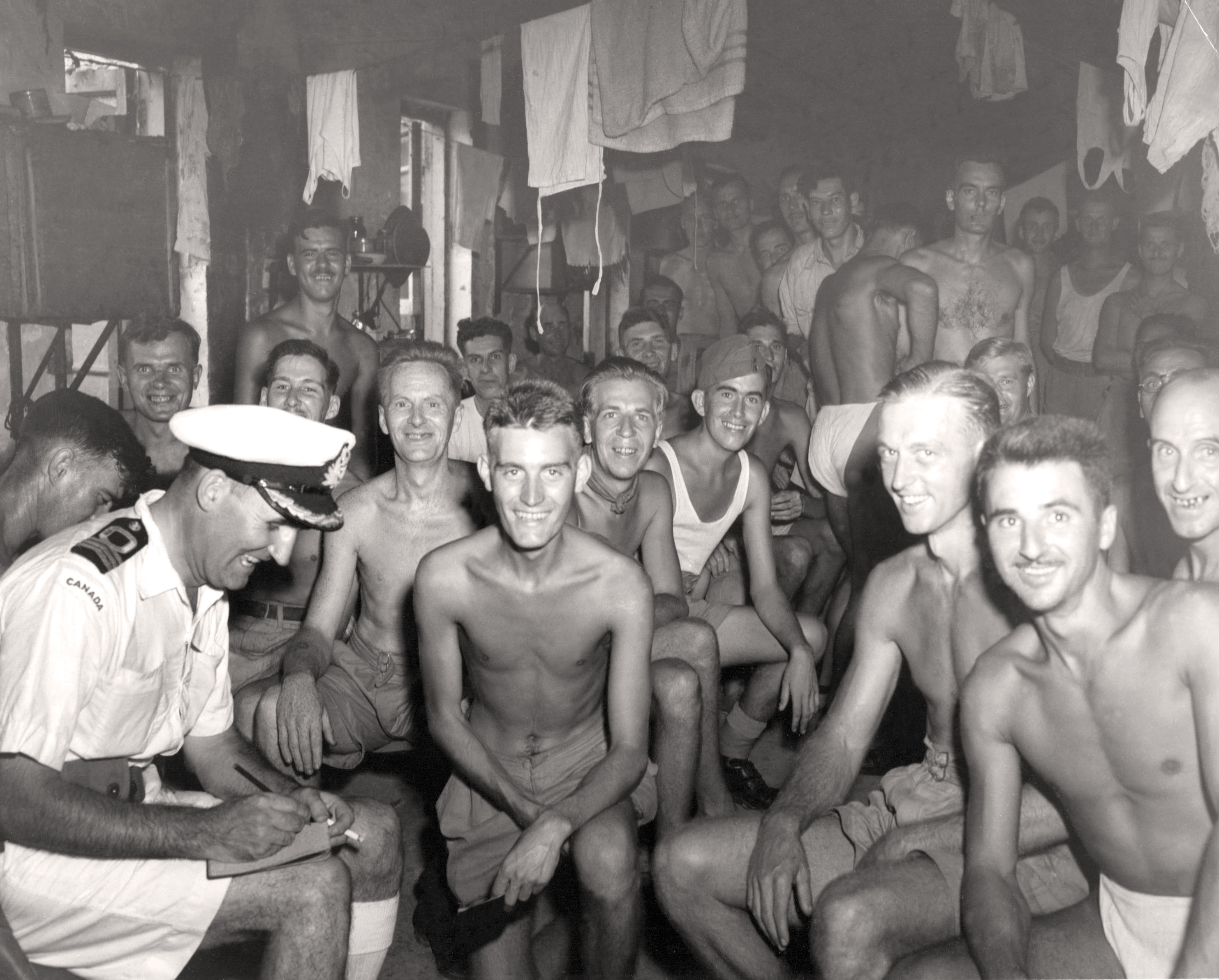
Liberated Canadian prisoners from Hong Kong return to Canada on board HMCS Prince Robert. [LAC—PA154976]
Canada had dispatched the Winnipeg Grenadiers and Royal Rifles from Quebec City to join 14,000 Allied defence troops in the Hong Kong garrison. They arrived Nov. 16, undertrained, poorly armed and without their transport and heavy equipment.
They were told there were only 5,000 ill-equipped and badly supplied Japanese troops nearby, which was far from the case: 52,000 seasoned, heavily armed Japanese invaders launched their assault on Hong Kong on Dec. 18.
The Hong Kong defence plan called for forces to be thinly spread; the Japanese overran the defences in just a week, despite courageous fighting, Sergeant-Major John Osborn, for example, repeatedly tossed back enemy grenades and then fell on one, saving a half dozen comrades. He was posthumously awarded the Victoria Cross.
By Dec. 23, while heavy fighting continued, Ottawa was informed the defence had collapsed. The water supply had been captured, and the men were exhausted from continuous fighting, shelling and air attacks.
Hong Kong surrendered on Dec. 25.
Some of the Japanese went on a rampage, raping and murdering even hospital patients and nurses.
Every one of the 1,975 Canadians became a casualty of war: 290 were killed in battle, 493 were wounded, and everyone who survived the battle was taken prisoner. In the following months, 260 Canadian PoWs died of starvation, disease, overwork and brutal treatment in the 44 months they were interned.
In 1943, 1,184 Canadian PoWs were moved by ship to Japan and forced to work in mines and shipyards, surviving on a food ration of as little as 600 calories a day. In a weakened state, they suffered the diseases of vitamin deficiency—beriberi, pellagra, “electric feet” and blindness—and lived in unsanitary conditions, with rampant cholera, typhoid fever, diphtheria and dysentery.
In 1947, the Hong Kong Veterans Association of Canada began seeking an apology and compensation from Japan. In 1951-52, a paltry compensation of about a dollar for each day of captivity was paid, and lukewarm apologies issued.
In 1998, the Canadian government gave each prisoner or surviving spouse about $24,000 in compensation. Japan finally issued a full apology for the brutal and inhumane way it treated Second World War PoWs on Dec. 8, 2011.
Advertisement




















